How To Recover From A Best Friend Breakup
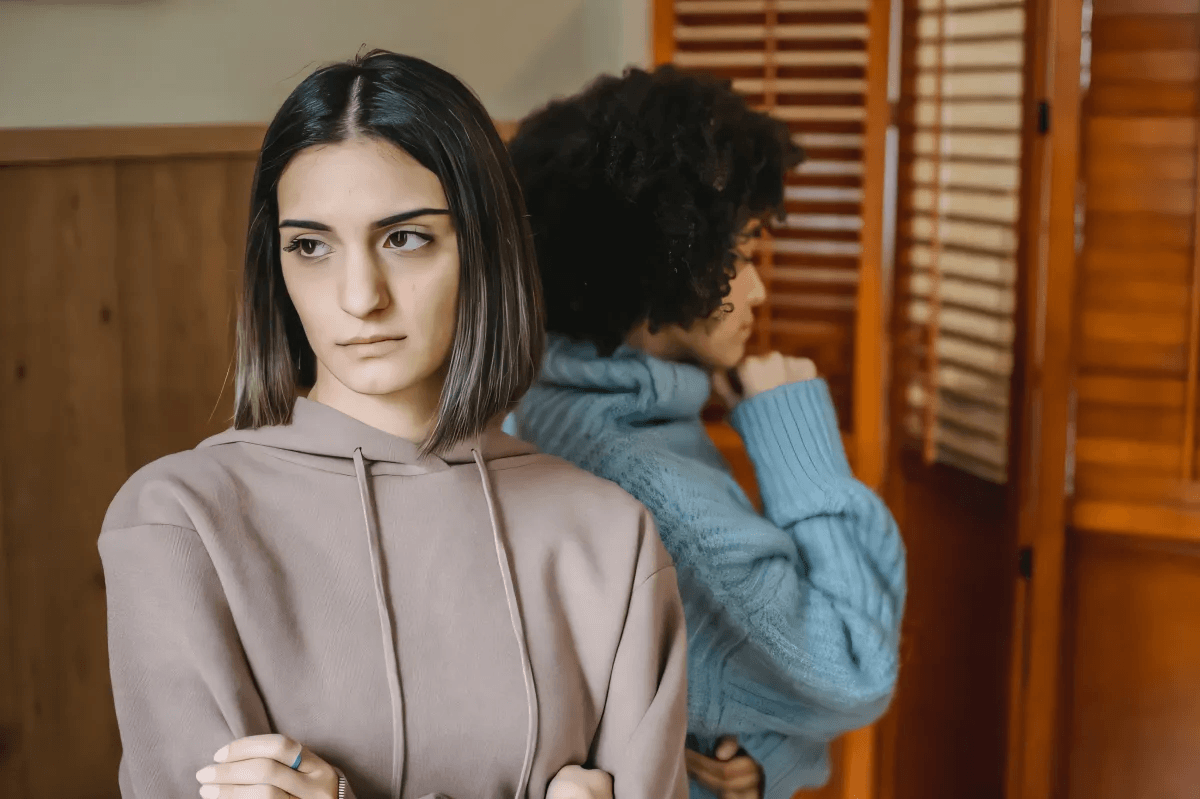
Everyone wants to stay friends forever with the people closest to them. Whether it's elementary school friends that call each other best friends forever or adults who have been best friends since kindergarten, we admire those who retain friendships for a lifetime and aim to do the same. However, life doesn’t always work out that way.
In life, losing people is inevitable. Instead of being filled with resentment and jaded from forming friendships in the future, it’s important to understand the reason that friendships can end and the healthiest ways of letting go and moving forward.
How to mend broken friendships (and when to let them go)
When friendships end, whether through falling out or drifting apart, we’re left with many unanswered questions. Understanding why some friendships end and how to mend unhealthy or broken friendships can lead us to happier futures.
Why some friendships end and why it’s okay to move on

Losing best friends is entirely normal, and it’s nothing to be ashamed of. Growing apart from friends is common when we’re young, but it can happen at any point in our lives. This is partly because our personalities change and grow over time.
During our school years, we are forced to be in one place for many hours of the week. Many of us form friendships simply based on who’s there; this isn’t a bad thing, but it can explain why these friendships seem to fizzle out once we’ve graduated.
Growing up also brings a new perspective. We get to know ourselves better as we grow older and have more life experience. With that emotional maturity comes a better understanding of what we want out of our lives and out of our friendships. It’s natural, then, that our friendships may change as we grow older.
While it is widely believed that our personalities stabilize at a certain age- say around thirty- evidence presented in an article by the BBC states that this isn’t true. According to René Mõttus, a psychologist from the University of Edinburgh, “we are not the same person for the whole of our life”. Rather, our personalities continuously develop and change in what is called “personality maturation”.
This is supported further in an article by Live Science published in 2020. It has been found in studies that as we mature, our personalities improve; we become more agreeable, extroverted, and conscientious due to what scientists call “the maturity principle”.
In summary, our personalities are constantly changing. Rather than holding onto friendships that no longer feel right for us, we should accept where we’re at in life and prioritize the people we feel connected to now.
Healthy vs. Unhealthy Friendships
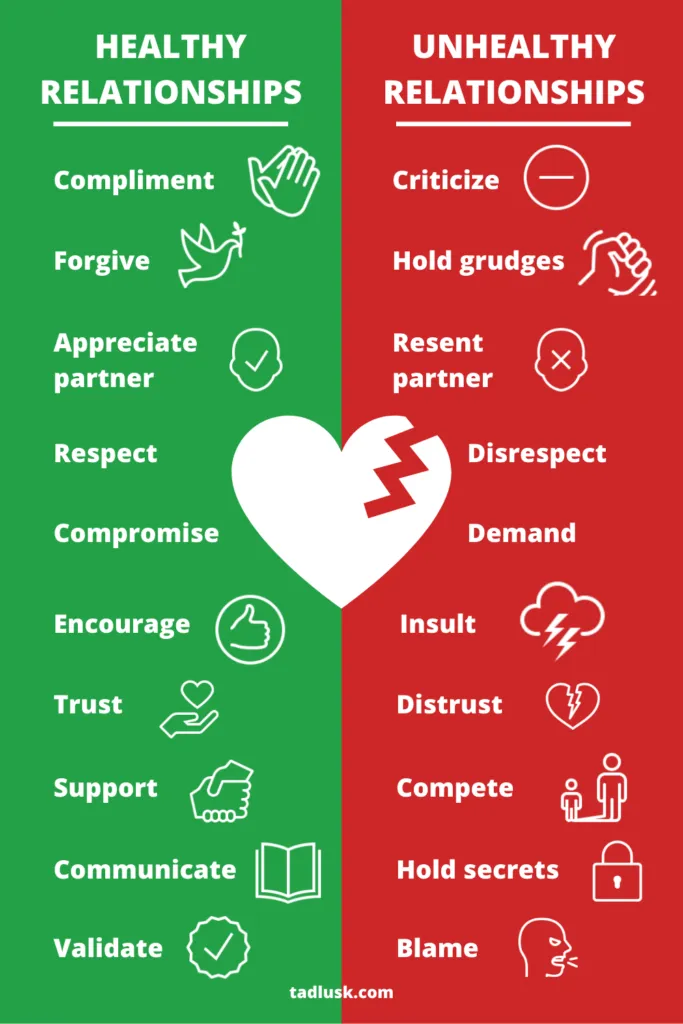
Note: Many trademarks of a healthy or unhealthy friendship can also be applied to romantic or family relationships.
In simplest terms, healthy friendships make you feel good. In healthy friendships, you should feel supported, accepted, and uplifted after spending time together. Contrarily, unhealthy relationships can leave you feeling drained, down, or angry.
According to Dr. Jane Bluestein and Eric Katz, MSAC, healthy friendships have many positive characteristics. These are the friends who respect each other’s differences, accept each other for exactly who they are, support each other in everyday life, and make you feel safe. Healthy friendships are also about equality; each person gives to the friendship equally and respects the other person as an equal.
An article by Healthline states that unhealthy aspects of relationships can either be subtle or extremely obvious. These aspects can be changed- but only if both parties are willing to do the work. This means being willing to communicate and take responsibility to shift the relationship from its unhealthy behaviors.
When addressing an unhealthy friendship, try not to blame the other person for any past behaviors. Instead, focus on what needs to change moving forward. If they seem unwilling to listen, it may be time to walk away.
Recognizing Toxic Friendships
It can be difficult to accept when a friendship becomes toxic but doing so is the first step to making positive changes.
This video illustrates what toxic friendships can look like:
If you find yourself questioning whether a friendship is toxic, or you know that a friendship has become unhealthy for you but aren’t sure what steps to take, it’s vital that you reach out for support. If you are young, talk to a parent, teacher, or trusted adult about what you’ve been experiencing. If you are an adult, you can reach out to family members or other friends to support you.
Nobody deserves to be unhappy in a friendship. Taking the steps to leave or change toxic relationships can benefit you both and lead to happier and healthier experiences in the future.
Can friends have different values than us?
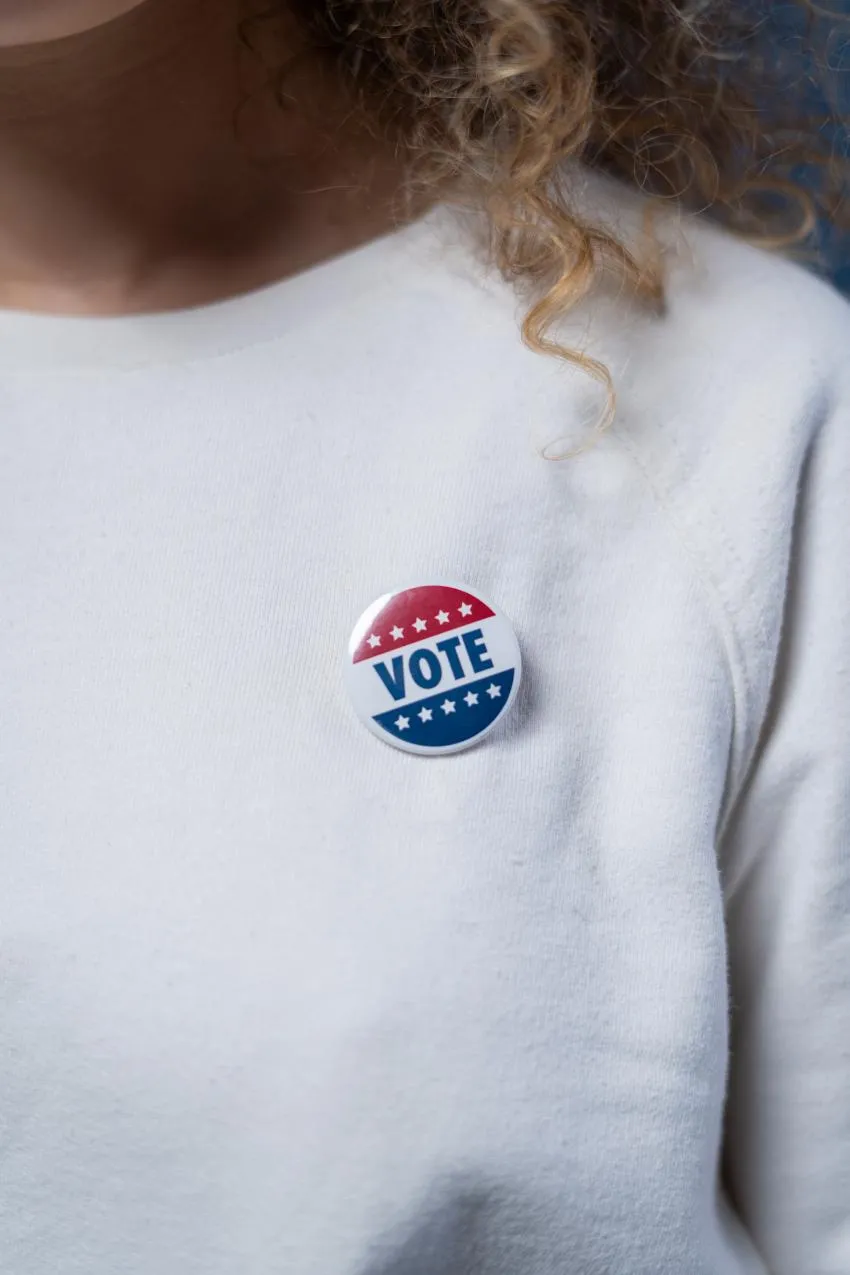
Values are the things in life that we view as important. These can include family relationships, our own moral codes of conduct, or the impact we wish to have on the world. It can also include things like political or religious beliefs. No two people will have the exact same values, but in certain situations, a clash of values can lead to an unhealthy relationship.
Because values are such a broad topic, it’s impossible to definitively answer whether you should or shouldn’t remain friends with those who value different things. Instead of looking at you and your friend’s values and trying to measure how compatible they are or whether you ‘should’ remain friends, consider the effect this friendship has on your life. Are you in a healthy friendship, or does the difference in values only contribute to underlying issues and discomfort?
In my own life, I have had to walk away from friendships that I thought would last forever due to our differences in values. I used to be part of a Christian friend group that honored traditional values which, as a queer woman, I couldn’t live up to. Things seemed fine on the surface, but I was often left feeling hopeless and drained after spending time with them. I should have seen the signs that this was becoming an unhealthy friendship based on how it was making me feel.
My Christian friends were always kind to me, but to maintain my friendship with them, I suppressed a huge part of myself. This led to feelings of resentment, disappointment in myself, and a crisis of faith.
By the time I finally walked away from these friendships, I was left with scars and a damaged relationship with God that never truly recovered. I should have recognized the relationship as unhealthy and drawn boundaries to protect myself. Instead, I damaged my self-esteem and unfairly lashed out at my friends instead of communicating with them when I was unhappy.
This isn’t an example of why you shouldn’t be friends with certain types of people, but an example of how ignoring the warning signs of an unhealthy relationship only harms you and the people you care about. Remember that the main person you are responsible for at the end of the day is yourself. If you find yourself searching for excuses to leave a friendship, that in itself is enough of a reason to let go and move on.
The Hardest Parts of Losing Your Best Friend
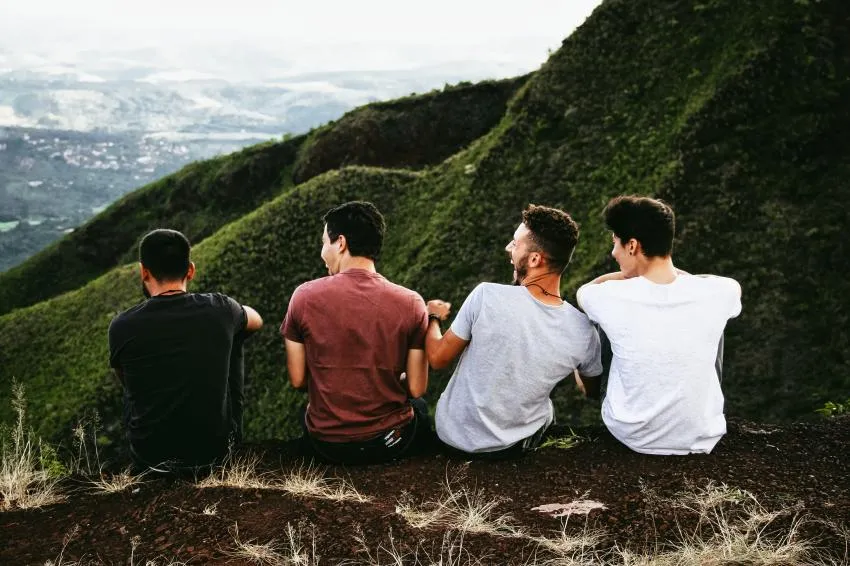
Platonic vs. Romantic: why one isn’t more important than the other
One reason friendship breakups are so hard is that they’re rarely talked about the way romantic breakups are. This is because platonic friendships are often considered to be less important than romantic relationships in today’s culture.
There is a multitude of disadvantages to this way of thinking; it ostracizes the aromantic/asexual community, places unnecessary pressure on girl/boy friendships to turn romantic, and makes it easier to settle for ingenuine romantic relationships for the sake of meeting societal expectations. None of this means that romantic relationships aren’t important; it simply means that they should be valued alongside familial and platonic relationships instead of above them.
With platonic friendships being undervalued, it’s also harder to come to terms with how painful it can be when friendships end. When I had a falling out with a best friend from high school, I felt ashamed of the mental toll it took on me. I was almost embarrassed by how badly it hurt because, in my mind, only romantic breakups were supposed to be that painful.
Once we learn to prioritize platonic relationships alongside romantic ones, we can be more honest about our feelings and better appreciate the friendships that we have.
How to cut ties with former friends (and when to learn to coexist instead)
Whether or not you ‘cut ties’ with someone depends on the situation. For example, if you and a friend can’t have a conversation without arguing, it’s probably best to cut ties with that person. However, if you and your friend simply don’t have much in common anymore, remaining casual friends is a reasonable option. It’s also a good idea to stay casual friends with those who share an environment (like school) or a friend group.
Something to keep in mind when deciding to remain, casual friends, instead of cutting ties is that the friendship isn’t going to be the same as it once was. When I tried to rekindle a friendship with my high school best friend, for example, all I could focus on was how different everything felt.
It wasn’t realizing how much she had changed that upset me, it was the realization that I was no longer as important to her life as I once had been. I decided to end the friendship and cut ties with this person, even though I still cared deeply for her because it was what was best for me.
It’s important to always keep in mind that ending a friendship doesn’t mean you hate the other person, or that they did something wrong. Sometimes, it’s more healing to let a friendship go in order to maintain peace. You can love someone by letting them go. Sometimes, it’s the only way you can love them.
Social Media- when unfriending is the right thing
Ending a friendship with someone can be difficult, especially in the social media age we live in today. It’s hard to push a past friendship from your mind and focus on the now if their face is always popping up on Facebook or Instagram feeds. That, paired with social media’s nature of only featuring the highlights and accomplishments in someone’s life, can easily lead to a spiral of jealousy and regret.
While it may feel like unfollowing or blocking your friend is unnecessary, the constant reminder of someone who is no longer part of your life (or is less a part of your life than they were before) can hold you back from healing. Remember that a key part of moving on is moving forward. Letting go of the past, even in small ways like changing our social media, always brings peace.
The Next Chapter; How to truly move on from friendship breakups
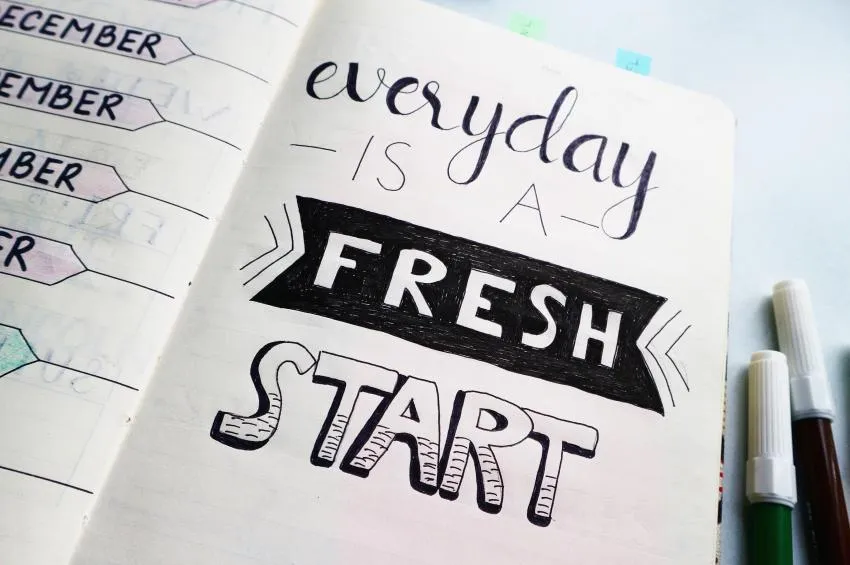
Something good can come from every lost friendship. Even if things end badly, time brings healing and perspective. I’ve lost many friends over the years for many different reasons, but I now recognize that I can honor those friendships by holding onto the positive memories and paying attention to the lessons that they taught me.
Memories, unlike people, are entirely our own. No matter how things ended, the memories of the good times we had with old friends are something we can cherish.
Looking back fondly on past friendships doesn’t mean we have to miss the person or want them back in our lives. Many of my fondest memories are with people I’ll likely never talk to again, but instead of fostering anger or wishing things could change, I choose to give thanks for the good times we had together and appreciate the lessons that they taught me.
Ten Steps to Building Healthier Friendships
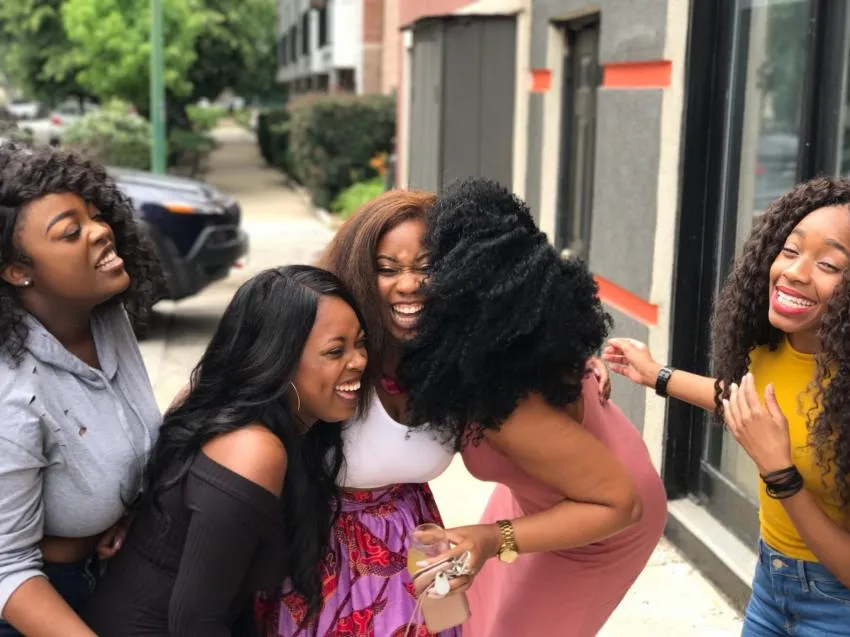
With every ended friendship, I have learned lessons on how to better myself and the relationships in my life. Follow the following ten tips when creating new friendships and use them to evaluate the friendships you have now. Even the best friendships can grow and evolve into something better with the knowledge and courage to make positive changes.
1. Be 100% Yourself in every friendship
Whether it’s out of fear or to appease others, it can be easy to put on a front instead of acting authentically. But in any friendship, acting like yourself is the only thing that will lead to being truly accepted. If you focus on trying to please others by watering down your personality or hiding huge parts of who you are, you miss out on the love that comes when others see you and accept you.
I never understood why my past friendships left me feeling so unfulfilled until I realized I wasn’t letting my true personality show. Fitting in was important to me when I was young, but the friendships I formed still left me feeling isolated. It was only after letting go of that fear of rejection that I was able to build the friendships I have now. The people I surround myself with aren’t better than those I used to know; rather, by being myself, I allow them to love me for who I am which makes me feel more secure.
2. Learn how to communicate with your friends
Having honest and open conversations takes work. Learning not only to express our needs and feelings but also to listen to and adapt to others is a skill that can be developed throughout our lives. It’s important to always try to talk honestly to our friends and to not avoid uncomfortable conversations out of fear.
However, true friendships are about more than what’s on the surface. A communication study performed by Angela R. Wiley, Ph.D. and published in 2007 acknowledges that direct communication is important, but also talks about the importance of emotional communication.
Emotional communication builds relationships through expressing and responding to the desire to be known. It’s about how we pay attention to each other and pick up on small details, like body language or the connotations behind words. Wiley notes that healthy emotional communication is positive, straightforward, and soft. It thrives when both parties feel safe enough with each other to communicate their needs honestly.
In simplest terms, direct and emotional communication is all about being honest and paying attention.
3. Let go of friendship jealousy
According to Psychology Today, jealousy is a complex emotion meant to alert us when we’re in danger of losing a valued relationship. Those who deal with the fear of abandonment, low self-esteem, or high neuroticism are more likely to feel jealous. In many cases, jealousy doesn’t reflect reality, but the insecurities of our own minds. If you struggle with jealousy, it’s worth considering why you feel that way. Is it the result of a specific situation, or a deeper issue in your own mind you need to address?
Keep in mind that no single relationship is going to provide everything a person needs. Feeling betrayed because your friend is close to other people just isn’t fair. However, if your friend suddenly seems to be ignoring you to spend time with someone else, this can understandably hurt. In those situations, communicate your feelings calmly and honestly to your friend. Honestly addressing the issue is what leads to the issue being resolved.
4. Be honest about your boundaries
PsychCentral calls personal boundaries “the lines we draw for ourselves in terms of our level of comfort around others.” These can include physical boundaries like not wanting to be hugged or emotional boundaries like not being okay discussing certain topics and should be clearly established in any relationship. Maintaining boundaries is about respecting yourself and keeping yourself safe from potentially upsetting situations.
It can be hard to set boundaries for yourself, but the more we practice doing so, the healthier and happier our friendships will look in the long run. It’s also important to always honor a friend’s boundaries to the best of our abilities, even when those boundaries don’t make sense to us.
5. Respect your friend as your equal
One important aspect of any healthy friendship is equality. If you look down on your friend as lesser than for any reason- whether it be social status, money, or circumstances in life- you aren’t respecting them. On the other hand, idolizing your friends and feeling like you’ll never measure up to them isn’t healthy, either. Work to see your friends as equals, and make sure that you’re being treated as an equal by them. This also means giving equally to the friendship; if it feels like one friend is putting in more effort than another, figure out why and whether it’s something that can be changed.
6. Separate this friendship from past friendships
Comparing your friendship to past friendships you’ve had, or to the friends we see on social media or television, only does a disservice to you. Every person is unique, and so is every friendship.
This uniqueness is something to be valued, not ashamed of. If there are specific ways you want the friendship to change, for example, if you want to hang out more often or start doing a certain activity together, make sure it’s because you want that change and not because you think your friendship has to have it.
7. Trust your friend not to hurt you
If you’ve been burned before, it can be tempting to look for warning signs in every new friendship. However, by expecting history to repeat itself, you undermine not only your new friend’s choices but also your own personal growth. Instead of focusing on negativity and fear, let yourself let go of the past and focus on the now. This is easier said than done. I know, I’ve been through it but it’s an integral part of moving forward.
8. Give your friendship time to develop
According to Today, it takes 40-60 hours to form a casual friendship, 80-100 hours to transition from casual friendship to friendship, and 200+ hours to become best friends. Add in the effects of a digital age and the fact that hanging out in person always feels different than being separated by a screen and it can seem like even longer.
It can take time to feel comfortable when getting to know someone new. Don’t try to rush to ‘best friend’ status- let the friendship develop naturally. You might be surprised at what an important part of your life they become.
9. Let go of the fear of losing your friends
The honest trust is that not every friendship will last forever. As we grow and change, our values, personalities, and interests will undoubtedly adjust. There’s no way to know which friends will stay close and which will end up going their separate ways. Just remember that there’s beauty to be found in every new friendship and focus on cherishing the people in your life now, instead of focusing on what the future may bring.
10. Love Yourself First
The most important thing I learned from my past friendships was how to value myself first. In my past, I’ve looked to the people in my life for validation and to feelings of ‘worthiness’. This pattern not only put an unhealthy amount of pressure on my friends, but it also left me feeling jealous, anxious, and miserable.
It took years for me to realize that what I was looking for was self-love. So much of our own happiness comes from within, but instead of working on myself, I reached out to others for approval. When I finally learned to let that go, my friendships evolved from something I desperately needed into something that I wanted and that made me happy.
Summary
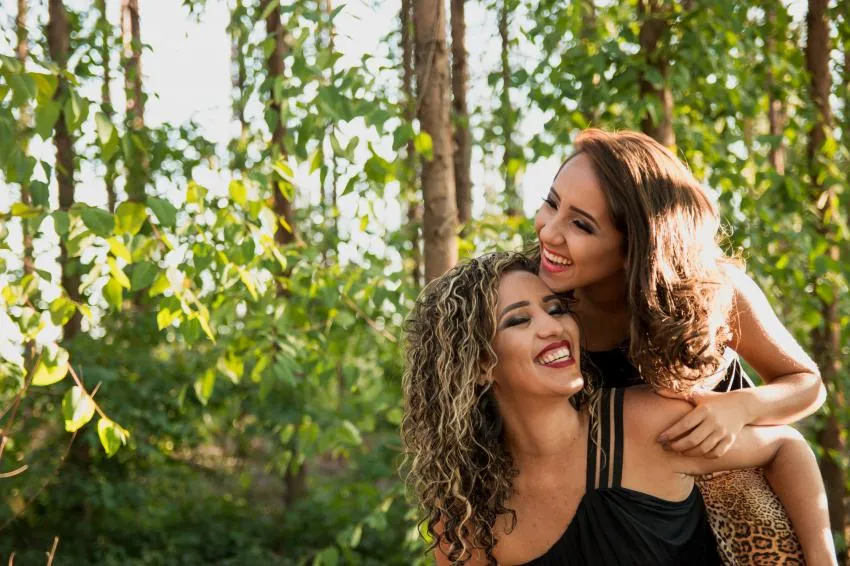
Everyone loses friends in their lifetime, but that’s completely natural. Understand how friendships end, treasure the good times you had in each relationship and use the lessons you learn to build healthier friendships in the future. In this way, even though you grow apart from certain people, the positive effect they had on your life stays with you forever.
Opinions and Perspectives
Just what I needed to read while going through a friendship transition.
The section about different values in friendships really hit home for me.
Learning to let go of toxic friendships has been hard but necessary for my growth.
Reading this made me realize I need to work on being more authentic in my friendships.
Great perspective on how to handle social media after friendship breakups.
Dealing with friendship jealousy right now and these insights are helpful.
Finally understanding why some college friendships didn't survive after graduation.
I always blamed myself for lost friendships. This helped me see it's often just natural growth.
This helped me understand why my friendship dynamics changed after having kids.
The part about setting boundaries in friendships is something I'm still learning to do.
Really needed this perspective on letting go of past hurts to make room for new friendships.
Never considered how much time it actually takes to build different levels of friendship. Makes sense though.
So true about the impact of social media on friendship breakups. Sometimes unfollowing is self-care.
This helped me realize I've been holding onto some friendships out of obligation rather than joy.
The point about not comparing friendships to social media portrayals is so important.
Just shared this with my daughter who's going through her first friendship breakup. Really helpful perspective.
Totally relate to feeling drained after hanging out with certain friends. Time to reevaluate some relationships.
The section about personality changes over time really helps explain why some friendships naturally end.
Struggling with a toxic friendship right now and this gave me courage to make changes.
Currently rebuilding my friendship circle after moving cities. These tips are really helpful.
Love the point about cherishing memories while moving forward. It's possible to do both.
I'm going through this exact situation now. The hardest part is accepting that neither person did anything wrong.
This article helped me understand why some of my college friendships didn't last beyond graduation.
The comparison between platonic and romantic breakups is so true. We need to normalize friendship grief.
Wish there was more advice about maintaining long-distance friendships. That's often when mine start to fade.
Learning to accept that not all friendships are meant to last forever has been tough but necessary.
The part about emotional communication is spot on. It's not just what we say but how we say it.
This helped me understand why I keep checking my ex-best friend's social media. Time to hit unfollow.
Never thought about how our personalities keep changing throughout life. Makes friendship changes seem more natural.
Really appreciate the emphasis on self-love. Can't be a good friend until you're good to yourself.
The section about healthy vs unhealthy friendships helped me realize some patterns in my own relationships.
Needed this reminder that it's okay to outgrow friendships. Doesn't make anyone the bad guy.
Currently struggling with a friendship where our values have diverged. This gave me perspective.
Such an important topic that nobody talks about. Friendship breakups can hurt worse than romantic ones sometimes.
Dealing with this right now and feeling less alone after reading everyone's experiences.
The Christian friends example really resonated. Had a similar experience when I came out.
I disagree that all friendships need equal effort. Sometimes one person needs more support temporarily.
Just went through this and the part about unfollowing on social media really helped me move forward.
Love the point about memories being our own. We can cherish good times without needing that person in our life now.
The tips about boundaries are so important. Wish I'd learned these earlier in life.
This is helpful but I wish there was more advice about reconciliation. Sometimes friendships can be saved with work.
Makes me feel better about ending some toxic friendships recently. Self-care isn't selfish.
I found the personality maturation research fascinating. Explains why I feel so different from who I was 10 years ago.
Anyone else feel like making friends as an adult is way harder than these articles make it seem?
The section on communication could be more detailed. Sometimes I struggle with how to express my needs without coming across as needy.
Great article but I think it's missing advice about how to handle mutual friends after a friendship breakup.
Interesting point about letting friendships develop naturally. I tend to rush into best friend status too quickly.
The part about respecting friends as equals really hit home. I realized I was putting some friends on pedestals.
Learning to be 100% myself in friendships has been a game changer. No more exhausting myself trying to be who I think others want.
That's exactly what happened with my college roommate. Sometimes people just grow apart and that's okay.
Just went through this recently. The hardest part was accepting that neither of us did anything wrong we just grew in different directions.
Never thought about the hours it takes to form different levels of friendship. Makes me more patient with new relationships.
Dealing with friendship jealousy right now and feeling seen. Working on my own insecurities instead of blaming others.
Really appreciate the balanced perspective here. Not every friendship needs to end in dramatic fallout some just naturally fade.
The point about platonic relationships being as important as romantic ones is so overlooked. Society needs to value friendship more.
I'm currently going through this with my childhood best friend. It hurts so much but reading others' experiences helps.
Sometimes I wonder if I'm too quick to let friendships go when things get tough. This helped me understand it's okay to move on when it's not working.
Those 10 steps are gold. Especially number 7 about trusting new friends instead of projecting past hurts onto them.
Wish I had read this in high school. Lost so many friends trying to be someone I wasn't just to fit in.
The section about values really spoke to me. I've been trying to maintain friendships with people whose core beliefs are completely different from mine and it's exhausting.
I've been struggling with whether to end a toxic friendship and this article gave me clarity. Time to put myself first.
I actually disagree with unfollowing on social media. If the friendship ended amicably, I think it's possible to stay connected online without it being unhealthy.
The social media part hit home. I kept torturing myself by checking my ex-friend's Instagram. Finally unfollowed and it helped me move forward.
It's so true that we don't talk about friendship breakups the same way as romantic ones. I felt so alone when my best friend and I drifted apart last year.
Thanks for sharing such a comprehensive guide. The part about personality changes over time really resonated with me. Makes me feel less guilty about growing apart from old friends.
I really needed to read this today. Just went through a painful friendship breakup and feeling lost.
